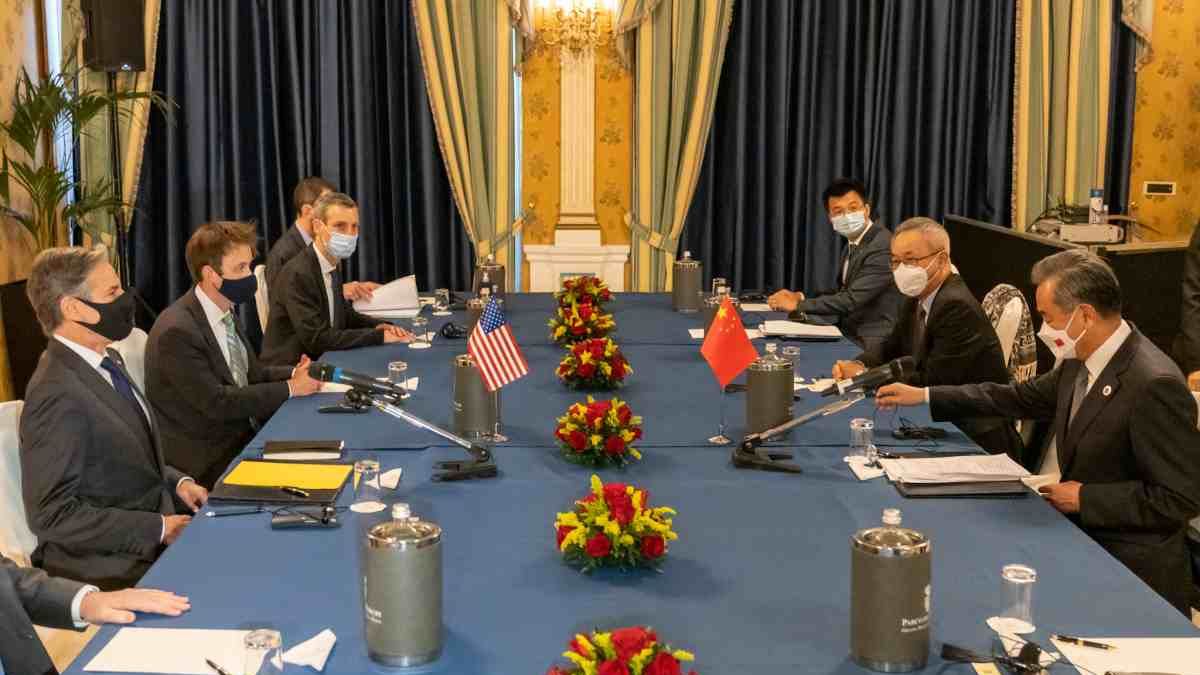Among those actions, he mentioned China’s human rights policy, the regions of Xinjiang, Tibet, Hong Kong, the East and South China Seas and, above all, Taiwan.
The US Secretary of State also stressed: “There are areas where our interests intersect and where we can collaborate, such as North Korea, Myanmar, Iran, Afghanistan and the climate crisis.”
Along the same lines, he maintained that dialogue between the two countries is necessary and stressed “the importance of keeping the lines of communication open to responsibly manage the competition between the United States and the People’s Republic of China.”
Although the two officials greeted diplomats from third countries with a shock to the shoulders, images of the beginning of the meeting between Blinken and Wang, broadcast on Chinese public television CCTV, show them from a distance, posing together but not touching.
The meeting ended with a more relaxed non-verbal language and clapping on the arms.
However, Wang openly expressed his disappointment at the lack of commitment from the United States, according to comments collected by the Chinese portal Global Times.
“We want the United States to keep its word, to genuinely engage with the one-China principle and not say one thing and then do the other.” expressed the minister.
He also regretted the accusations of China as a disruptor in the security of the Taiwan Strait with its air raids.
“It is a totally false statement and a serious deception to the international community,” he said, adding: “The crux of the current situation in the Taiwan Strait is that the Taiwanese authorities repeatedly tried to break the framework of one China, and the United States. The United States is to blame for its collusion and support of the secessionist forces. “
For the minister, this crisis caused a “comprehensive impact” on relations between the two countries due to an “incorrect and arbitrary interference” US policy, to the point of “putting pressure on many small and medium-sized countries to repress China.”
Still, Wang expressed his desire to continue to “timely and frankly exchange views with the United States” to “improve understanding, remove doubts, avoid miscalculations and explore cooperation.”
Taiwan is one of the issues that generates the most conflict in the bilateral relations between the two powers, since the island with the support of Washington denounces the constant overflights of Chinese military aircraft in Taiwanese airspace.
The United States and China recently clashed over the fate of the island of 23 million people, which has its own government, currency and military.
China considers Taiwan – where Chinese nationalists fled after their defeat to the Communists in 1949 – a province that must be reunified, even by force if necessary.
Tensions between the island and the mainland rose to their highest level in decades with the Chinese presidency of Xi Jinping, which broke official communication with Taiwan five years ago after the election of Tsai Ing-wen, who emphasizes the island’s separate identity. .
China, which exercises veto power in the UN Security Council, has since stepped up its efforts to exclude Taiwan from the international community.
Tensions rose in early October after Beijing carried out a record number of sorties with military aircraft near the island, in the so-called Taiwan Strait.
David William is a talented author who has made a name for himself in the world of writing. He is a professional author who writes on a wide range of topics, from general interest to opinion news. David is currently working as a writer at 24 hours worlds where he brings his unique perspective and in-depth research to his articles, making them both informative and engaging.




